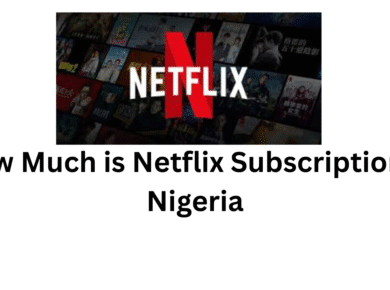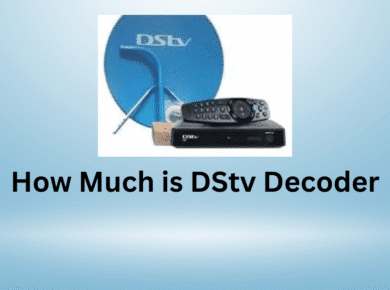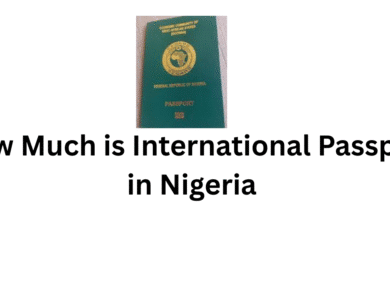Switching to solar power is becoming an increasingly popular solution for homes and businesses in Nigeria, offering a reliable alternative to the inconsistent national grid and the rising cost of fuel. But for many, the biggest question isn’t “why solar?” but “how much will it cost?”
This is a valid concern, as the price of a solar energy system can vary dramatically. Unlike buying a simple appliance, a solar setup is a custom investment. The total cost is influenced by a number of factors, including the system’s size, the quality of the components, and installation fees.
In this post, we’ll break down the average costs of solar panels and complete systems in Nigeria, explore the key factors that influence pricing, and help you understand what you can expect to pay for energy independence.
How Much is Solar Panel in Nigeria
1. Cost of Individual Solar Panels
The price of a solar panel in Nigeria is primarily determined by its power output, measured in watts (W), and the type of panel. The more power a panel can generate, the more expensive it will be.
- 100W - 200W Panels: These are often used for small-scale applications like powering a few lights or a fan. Prices typically range from ₦20,000 to ₦60,000 per panel.
- 300W - 400W Panels: This is a common range for residential use. A single panel can cost anywhere from ₦70,000 to ₦150,000, depending on the brand and efficiency.
- Higher Wattage Panels: Panels with 400W or more are also available, and their prices can exceed ₦150,000 each.
Monocrystalline vs. Polycrystalline Panels:
- Monocrystalline panels are more efficient and compact, making them a good choice for installations with limited space. They are generally more expensive.
- Polycrystalline panels are slightly less efficient but are more affordable, making them a cost-effective option for larger spaces.
2. Breakdown of a Complete Solar System Cost
The price of a complete solar energy system is much more than just the cost of the panels. It includes several key components that work together to provide power.
- Solar Panels: As outlined above, this is the first and most obvious cost.
- Inverter: This is a crucial component that converts the DC power from the panels into usable AC power for your appliances. Inverters in Nigeria can cost from ₦110,000 to over ₦1,000,000, depending on the size (kVA rating) and type.
- Batteries: Batteries store the energy generated by the panels for use at night or on cloudy days. They are a significant part of the total cost.
- Lead-acid batteries: These are a more affordable option, costing between ₦200,000 and ₦500,000, but have a shorter lifespan.
- Lithium-ion batteries: These are more expensive, ranging from ₦400,000 to ₦2.5 million, but last longer and are more efficient.
- Charge Controller: This device regulates the power flowing from the panels to the batteries, protecting them from overcharging. Costs can range from ₦40,000 to ₦250,000.
- Mounting and Wiring: This includes the frame that holds the panels on the roof, as well as all the necessary wiring and connectors.
3. Estimated Cost of a Full Solar Installation
While individual component prices are a good starting point, most people want to know the total cost for a complete, installed system. The price of a full installation depends on the system’s capacity, which is determined by your energy needs.
- Small System (1.5 kW - 2.5 kW): Suitable for a small home or apartment with basic energy needs (lights, fans, TV). These systems typically cost between ₦850,000 and ₦1.8 million.
- Medium System (3 kW - 5 kW): Ideal for a family home running multiple appliances like a fridge, a few air conditioners, and other electronics. The cost can range from ₦1.5 million to ₦3.5 million.
- Large System (10 kW and above): Designed for large homes or commercial properties with high energy consumption. These systems can cost ₦4 million to ₦20 million or more.
Note: Installation and labor fees are also a factor, with costs for a residential setup ranging from ₦100,000 to ₦500,000.
4. Factors That Influence the Final Price
The prices listed above are estimates. Your final cost may be different based on several factors:
- Your Energy Needs: The most significant determinant is your power consumption. A solar provider will conduct an energy audit to determine the right system size for your needs.
- Brand and Quality: Reputable brands with a good warranty and a track record of reliability will often be more expensive.
- Installation Complexity: The type of roof you have, the distance of wiring, and the overall complexity of the job will affect labor costs.
- Location: Prices can vary based on your location in Nigeria due to logistics and regional market differences.
Solar Panel Companies in Nigeria
To help you make an informed decision, we have compiled a list of ten of the top solar panel companies in Nigeria. These companies are recognized for their quality products, installation expertise, reliable after-sales support, and a strong track record of successful projects.
1. Rubitec Solar
A veteran in the Nigerian solar industry, Rubitec Solar has been providing renewable energy solutions since 2004. They are a well-respected company known for their work on major projects, including large-scale solar power installations and mini-grid systems for rural electrification. Their longevity and diverse portfolio make them a highly credible and trustworthy choice for any solar project.
2. Wavetra Energy
Wavetra Energy has carved a niche for itself as a leading provider of residential and small commercial solar solutions. The company is known for its high-quality installations and a strong online presence, making it accessible to a broad customer base. Wavetra’s commitment to customer education and support, combined with its reputation for professional service, has earned it industry recognition.
3. Arnergy
Arnergy is a major player in the renewable energy sector, specializing in solar solutions for households and small-to-medium enterprises. They are known for their innovative financing models, such as their “pay-as-you-go” service, which makes solar power more accessible to a wider demographic. Backed by significant international investment, Arnergy is a forward-thinking company focused on sustainable growth and reliable performance.
4. GVE Projects Ltd.
GVE Projects Ltd. (Green Village Electricity) is a prominent and innovative renewable energy solutions provider in West Africa. They have a strong reputation for successfully executing complex solar projects, including mini-grids that bring electricity to underserved communities. GVE’s customer-centric approach and expertise in tailoring solutions for different energy needs make them a top contender in the market.
5. Blue Camel Energy
With over a decade of experience, Blue Camel Energy is a trusted name in Nigeria’s solar industry. As a founding member of the Renewable Energy Association of Nigeria (REAN), they are committed to upholding industry standards. They offer comprehensive, end-to-end services, ranging from residential installations to large-scale solar farms and industrial backup systems.
6. Starsight Energy
Starsight Energy is a powerhouse in the commercial and industrial solar segment. They provide a unique “Power-as-a-Service” model, allowing businesses to transition to solar with no upfront costs. Their expertise lies in designing and installing robust hybrid solar systems with battery storage for a variety of clients, from major corporations to educational and healthcare facilities.
7. Solar Force Nigeria Ltd.
Solar Force Nigeria is a long-standing and respected company with over 15 years of experience in the industry. They have a solid reputation for providing cutting-edge solar technology and reliable solutions for both residential and commercial clients. Their commitment to helping customers embrace a cleaner energy future has made them a trusted partner.
8. Solynta Energy
Solynta Energy is dedicated to making solar power accessible and affordable through innovative financing and cutting-edge solutions. The company focuses on urban residential solar systems and has a strong track record of installations across the country. They are known for their professionalism and the ability to design bespoke solutions that meet specific energy requirements.
9. Gennex Technologies
Gennex Technologies is a major distributor and installation company that provides a wide range of solar solutions. With a focus on high-quality products from top global manufacturers, they offer comprehensive services for both residential and commercial users. Gennex’s team of experts is skilled in the design, execution, and maintenance of solar PV systems, ensuring long-lasting performance.
10. EM-ONE Energy Solutions
EM-ONE Energy Solutions is a significant player in the Nigerian renewable energy space, with a history of delivering large-scale solar projects. They specialize in complex off-grid and on-grid solar power solutions for corporate clients and government initiatives. Their extensive experience and technical expertise in engineering, procurement, and construction make them a formidable force in the industry.
Conclusion
Ultimately, the money you spend today on a reliable solar setup is an investment in your future. It’s an investment that frees you from the burdens of fluctuating electricity bills and the rising costs of fuel. By harnessing the abundant power of the sun, you gain energy independence, reduce your carbon footprint, and enjoy the peace of mind that comes with a consistent and clean power supply. The journey to solar may begin with a financial question, but it ends with a solution that offers lasting value and security.













